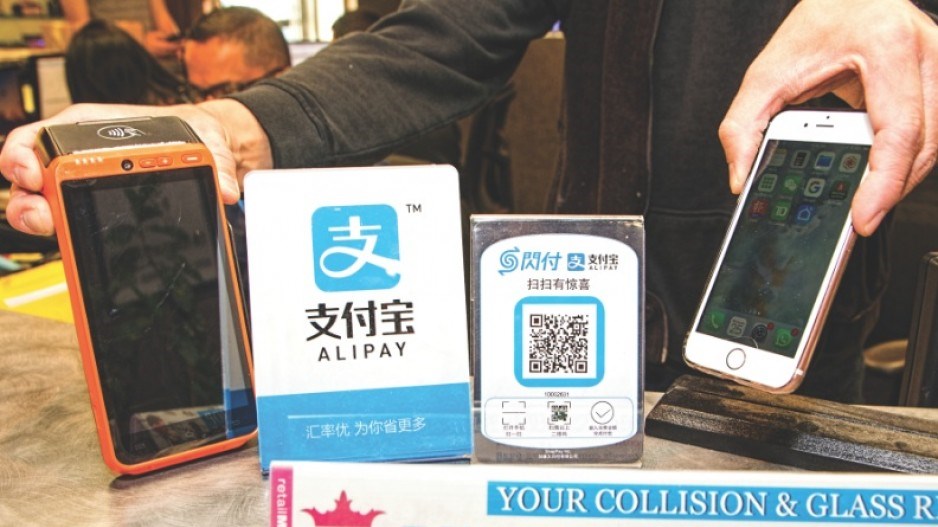Morris King already has “quite a few” mainland Chinese customers frequenting his auto body repair shop on Main Street and Southeast Marine Drive.
So when Chinese e-wallet provider SnapPay Inc. approached him about facilitating payments for customers through Alipay and WeChat Pay, the manager of Penney Auto Body & Glass was quick to join the caravan of B.C. firms accepting Chinese digital payments.
“It’s ease of use and the service charge is not bad, too,” King said.
Alipay and WeChat Pay are both mobile payment apps that require credit cards linked to China.
However, unlike the mobile wallet more familiar to Vancouverites, Apple Pay, the Chinese alternatives do not limit transactions to $100 as Apple Inc. (Nasdaq:AAPL) does in Canada. A customer could make a $5,000 purchase, in theory, if his or her credit card allows it.
Users make payments through a mobile app in renminbi that is converted to Canadian dollars for the merchants.
Malls such as Pacific Centre and Tsawwassen Mills are now allowing purchases of gift cards through these e-wallets, and high-end businesses like Porsche Centre Vancouver are accepting WeChat Pay.
While many local retailers were preparing four years ago to accept Bitcoin for those inclined toward digital payments, the cryptocurrency has yet to take off among consumers, despite a jump in investor interest.
Meanwhile, King said customers are using Alipay and WeChat Pay frequently.
In December, the Chinese government introduced new rules that place a US$15,000 limit on how much a Chinese citizen can withdraw annually while overseas.
“And that’s not enough for a lot of families,” said Chobee Aesthetic Marketing founder Lancho Cephivenus.
Cephivenus specializes in marketing through WeChat, a Chinese messaging service with 900 million daily active users, and has been working with Vancouver merchants to offer WeChat Pay to customers.
He said the new limits imposed by the Chinese government are partly behind the growing use of WeChat Pay in Vancouver.
“We know in China that WeChat Pay and Alipay are becoming more dominant forms of currency exchange and, if not already, it will be more dominant than the use of cash,” said Matt Pitcairn, president and CEO of the Richmond Chamber of Commerce.
Last month the Richmond Chamber of Commerce launched a partnership with MotionPay Technology Inc. to facilitate more Chinese e-wallet transactions between customers and chamber members, who receive competitive service rates through the partnership, according to Pitcairn.
Along with SnapPay, MotionPay is among eight vendors facilitating Chinese e-wallet services in Canada.
And while QR codes seemed to be a passing fad in Canada a few years ago, Pitcairn acknowledged that a new wave of QR codes has been hitting retailers in Richmond as customers scan them with their smartphone mobile apps to make e-payments.
“We’re really trying to expand the potential customer base and ease the payments for members to attract more sales and more people walking through their front door,” Pitcairn said.
“The majority of our tourists on an annual basis are directly from China, so to us it was absolutely a no-brainer to establish a partnership of this nature to create exclusive rate opportunities and more options for our members.”




